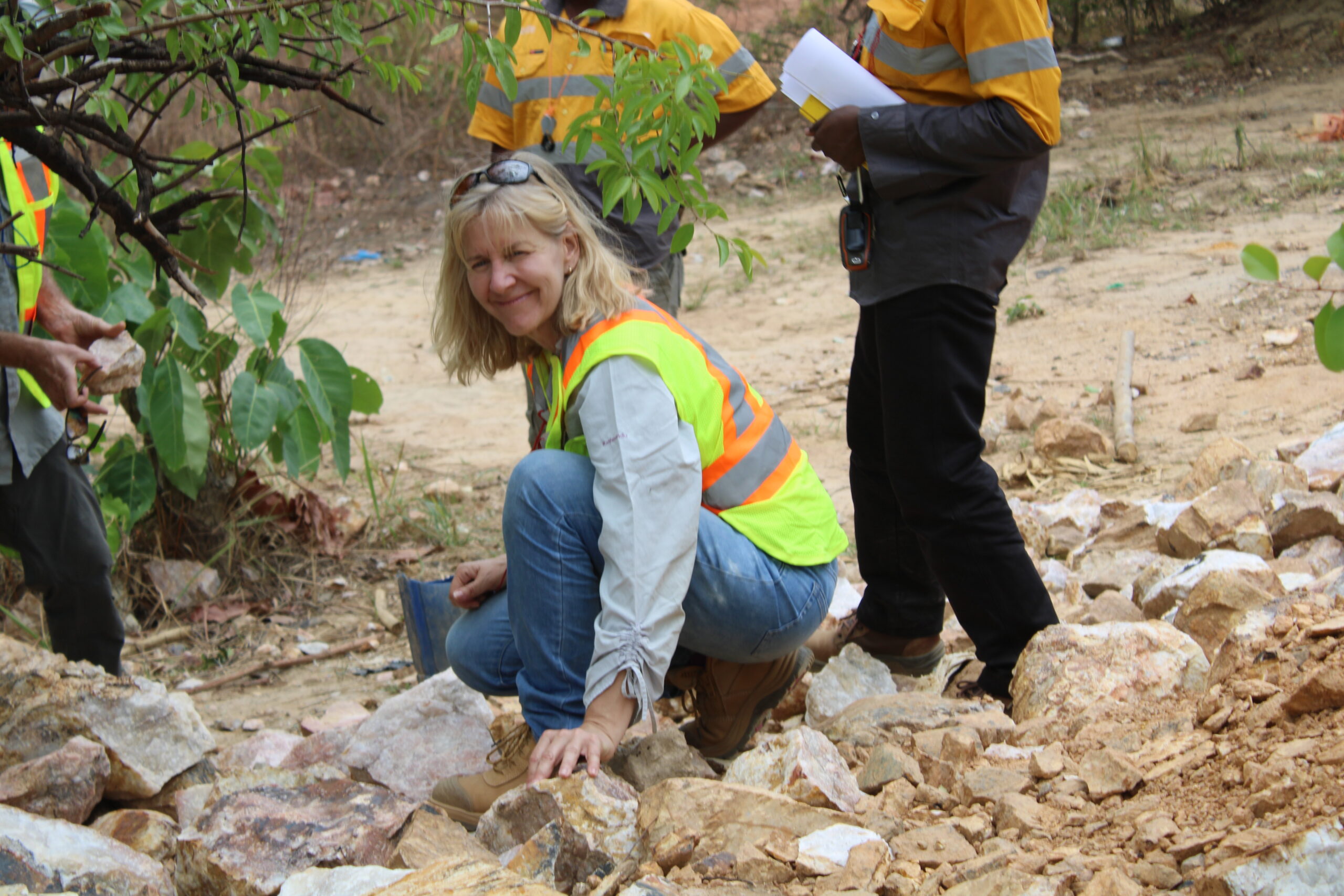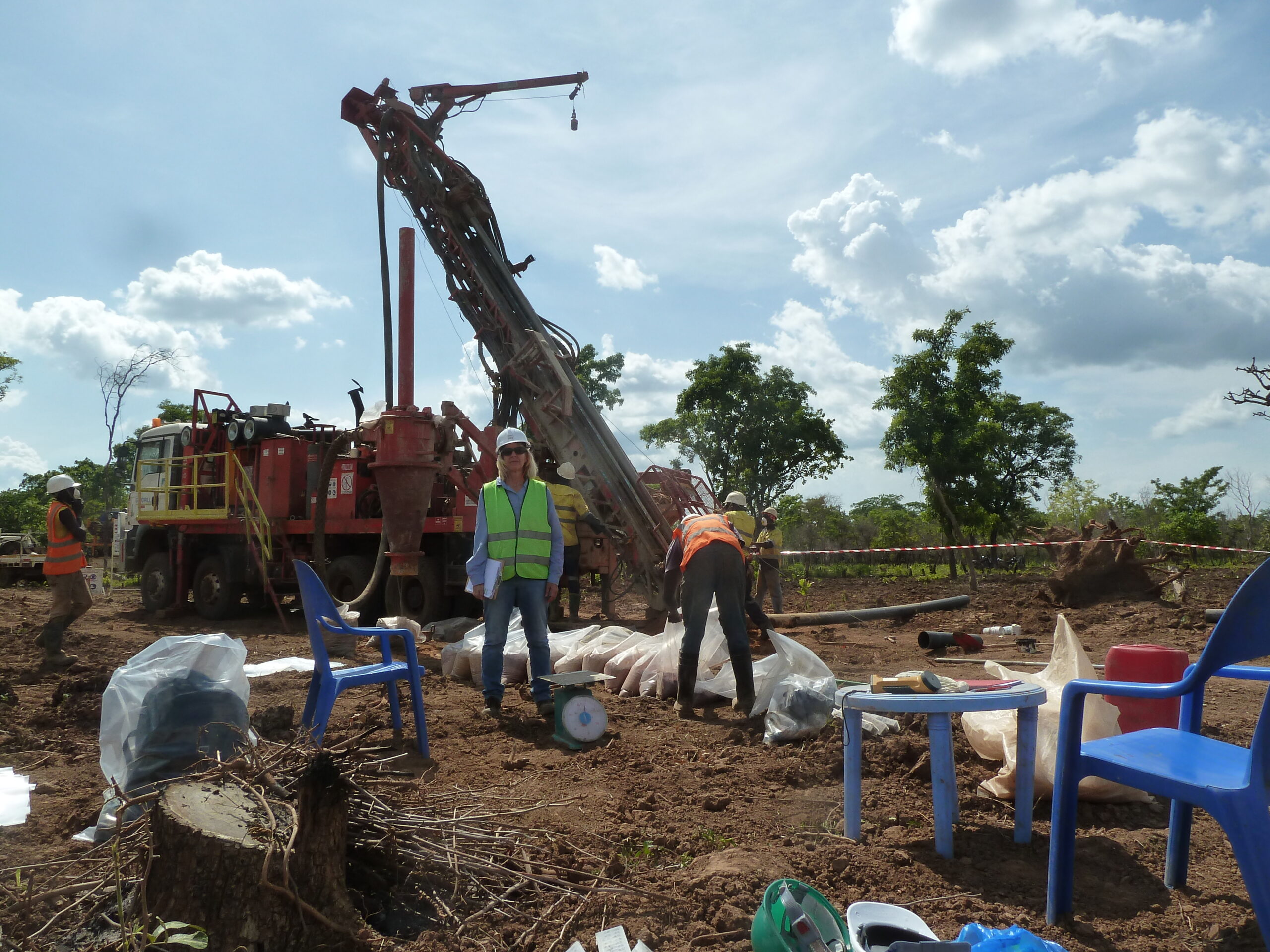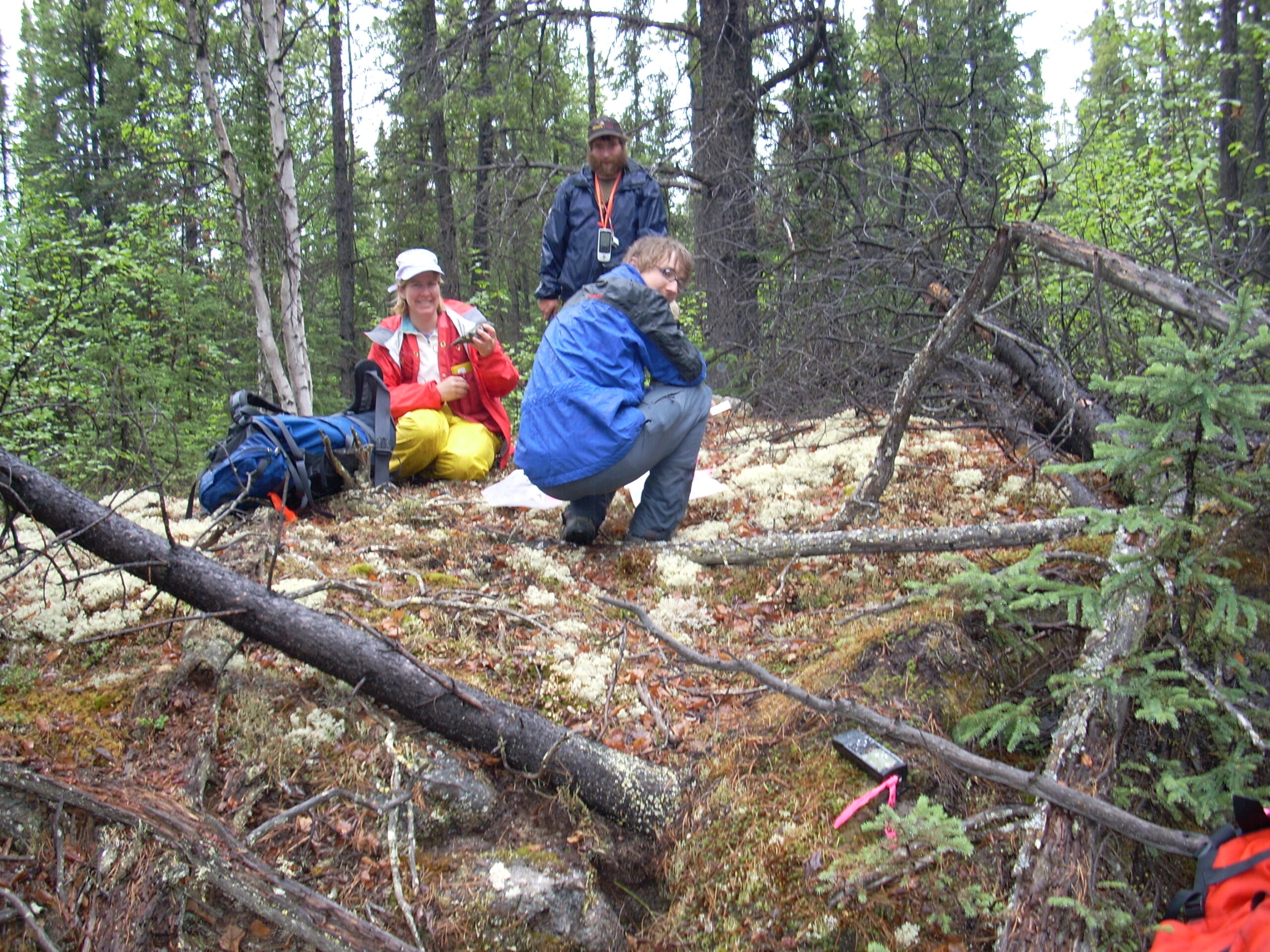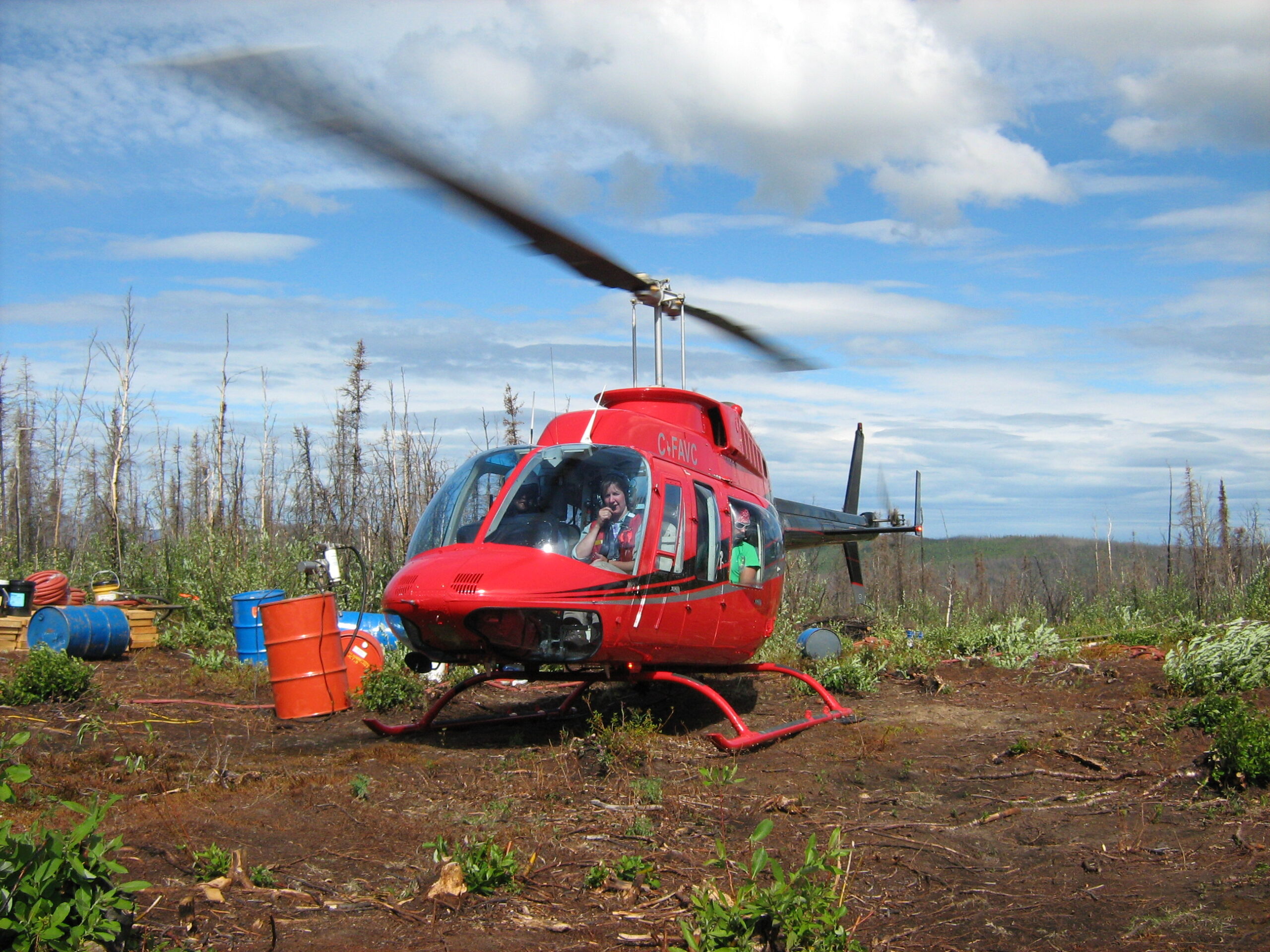Couples who stay together find gold together

Mako Gold's Ann and Peter Ledwidge are chasing the next major gold discovery in West Africa. Pic via Getty Images
- In the lead-up to International Women’s Day on 8 March, we’re celebrating some of the champion women of the resources industry
- Ann Ledwidge is the general manager of exploration at Mako Gold and previously led the discovery of the multimillion-ounce Natougou discovery in Burkina Faso
- The Canadian-born exploration geologist has maintained a healthy working relationship with her husband Peter for over 30 years
According to a survey commissioned by Forbes Advisor last year, 43% of people end up marrying someone they met at work.
Not only is Mako Gold’s (ASX:MKG) general manager of exploration Ann Ledwidge one of those individuals, she is also part of a unique subset of people to have actually hired their future spouse.
Unfortunately we can’t find stats for that particular cohort, but we suspect they’re significantly lower than 43%.
Over the last three decades, Ann and Peter Ledwidge have continued working side-by-side, discovering quite a few gold ounces along the way – the most notable being what is now the Bongou mine in Burkina Faso during their time with former ASX-listed Orbis Gold.
But we’re not sure the now Brisbane-based Canadians would have found their happily ever after if Ann had reacted differently to Peter’s shameless attempt to upstage her on their first job together.

Love at first (drill) sight
Ann employed Peter to help her complete what she remembers being a “pretty challenging” exploration program during the early northern Canadian spring many years ago.
There was still quite a bit of snow on the ground and the conditions would have challenged even the fittest and most seasoned geologists.
“We had to work in snowshoes – they’re probably a foreign concept to most Australians, picture having these great big oval-shaped wooden things on your feet, weighing you down – so it makes walking even harder,” Ann recalls.
“Peter and I were sighting drill holes and I think he thought I wouldn’t be able to keep up with him in the bush and he’d be way off in the distance without me.
“At one point he turned around and I was still right there with him. So I think I impressed him from the first week we worked together.”
And as they say the rest is history.
There have been many instances over the last 30 years where Peter has again come back to work for Ann, or the roles have been reversed, as is currently the case at Mako where Peter is the managing director.

Even when the couple have tried to go their separate ways professionally, fate seems to inevitably bring them back together.
“When we came to Australia, we sort of decided ‘OK, that’s it, we’re going to work for different companies now’ because we always ended up working together and lo and behold a year after we arrived here, we were together again working for the same company,” Ann told Stockhead.
“I don’t know how it keeps happening, but we work well together. We’ve always had a really good complementary working relationship.”
Who’s the boss?
Peter and Ann have become known universally as the husband-and-wife geology team behind Mako, which is advancing the almost 1Moz Napié project, as well as other promising gold and manganese opportunities, in Côte d’Ivoire.
However, you will never hear Peter refer to Ann as his wife, or vice versa. It’s always strictly by professional titles.
Ann says it’s disappointing some people believe she only holds her current position at the company because her husband is the managing director.
“It does kind of irk me when people refer to me as Peter’s wife. I don’t mind them saying I’m the general manager of exploration and then mentioning our relationship, but when I’m defined by being his wife, I feel like it belittles my capabilities as a geologist or my position in the company,” she says.

“We created this together. Peter was probably the original driving force because I was still working for Orbis at the time, but I want to be recognised for what I bring to the company from my technical background.
“If people want to add on that we’re husband and wife, that’s fine, because it does set us apart that we’re the husband-and-wife team – it’s a pretty cool thing to say – but as long as we’re both being recognised for what we bring to the company and that I’m not just here because I’m his wife, or vice versa.
“I have to say I’ve never hired Peter just because he’s my husband.”
‘Camps sure are a lot more comfy now’
Ann says while she has heard far too many “horror stories” from other women about the challenges they have faced working in the resources industry, she has personally never felt anything has blocked her career path to date.
Educated at Carleton University in Ottawa, Ann pursued a degree that closely aligned with her love of the outdoors and passion for all things science.

Ann felt welcomed from the moment she applied for the university’s signature geology course.
“It was actually interesting because there was one female professor in geology at the university, she saw that I had applied for the geology course, gave me a ring and offered me a tour of the university,” she says.
“I thought, ‘wow, this is great’, if I’m getting this kind of a welcome from a professor. So I think that had a lot to doing with leading me down the path of wanting to become a geologist.
“I think the other idea put it into my head was I’d met somebody that had just finished their geology degree and were telling me they had just got a job in Australia. Being from Canada, I remember thinking, ‘that’s so exotic, you get to travel, one day I’d love to go and be able to work in Australia’. It took me a couple of decades, but I did get here eventually. I never really thought about it after that initial time, thinking about the possibility of travelling, but it sure has been good.”
Ann notes one of the biggest differences between her introduction to the exploration industry and how it operates today are the improved living arrangements in accommodation camps, which weren’t particularly women-friendly back in the day.
“Camps sure are a lot more comfy now, people expect high standards,” she says.
“I did a lot of fly camping, living in tents in those early days. Some of them were big tents that you had to share with people. Sometimes they tried to put me with the female cook in camp, but that never worked out well because obviously cooks get up in a few hours after most people go to bed. It would always cause friction.”

While she was often the only woman in an otherwise all-male exploration teams during her first decade or so in the field, Ann says she was always treated as an equal.
In fact, they made sure everyone other crew they interacted with knew she was one of them – delivering the occasional moment of hysteria.
“I remember one young crew I was working with, we were going somewhere and we met up with some people we didn’t know and started chatting with them, and one of them asked, ‘is that your cook?’ referring to me,” Ann recalls.
“Even though I was just a junior geo at the time, the guys took great pleasure in saying that I was their boss and shocking this person.”
West Africa: The other home away from home
Six months after his first meeting with Ann, Peter went to work in Mali, in a move that would ultimately prove to be life-defining for the couple – even if neither of them knew it at the time.
Years later the Ledwidges would go on the carve out a successful career exploring the untapped greenstone belts of West Africa, particularly those parts where others were yet to start looking over. It is an adventure which continues to this day with Mako which they floated back in 2018.

When they joined Orbis amid the West African exploration craze in the mid-2000s, there were very little amenities in Burkina Faso set up for the company, so the decision was made to bring the family along for the journey which would ultimately culminate in the discovery of the multimillion-ounce Natougou resource.
“We realised that in order to set everything up, we had to go over there and spend an extended period of time over there, so we just packed up our kids, took them over with us and they went to school over there for six months straight,” Ann says.
“Having a family while you’re trying to work in the bush, especially in West Africa, is most definitely a challenge and you have to get pretty creative. We’ve been lucky when companies were really willing for them to come into camp with us.
“During one job in Canada we flew them in on the helicopter into camp and they just kind of amused themselves while we worked.”
Ann does not hesitate when asked if the Natougou discovery for Orbis was the highlight of her professional career thus far.
“When we drilled the first drill holes, when I started putting a model together and proposed a flat-lying gold deposit, it was kind of a tough sell to convince people that’s what it was,” she recalls.
“It wasn’t until we drilled oriented diamond core and people could actually see the structure, could hold the core in their hand and measure it that it all started to become believable.
“I remember a university professor saying that it’s so rare geologists actually find mines and that we should consider it a success if you come up with a plan for a drill hole and can convince your boss to drill that hole. Obviously to actually take that one step further and be able to find something, put a story together and come up with those ounces, and to do it with the team Peter and I put together – that was just so rewarding.”
At Stockhead, we tell it like it is. While Mako Gold is a Stockhead advertiser, it did not sponsor this article.
Related Topics

UNLOCK INSIGHTS
Discover the untold stories of emerging ASX stocks.
Daily news and expert analysis, it's free to subscribe.
By proceeding, you confirm you understand that we handle personal information in accordance with our Privacy Policy.








